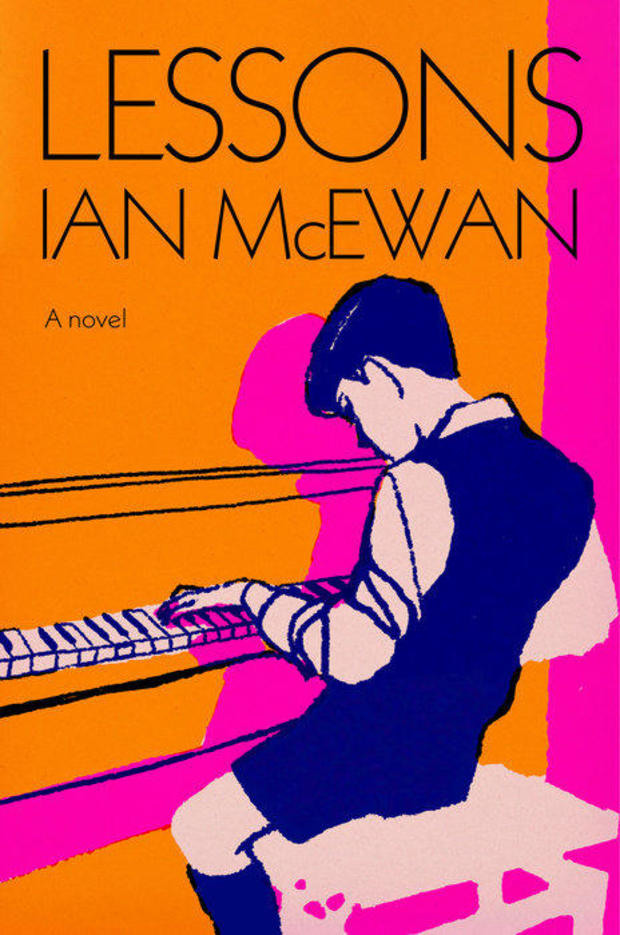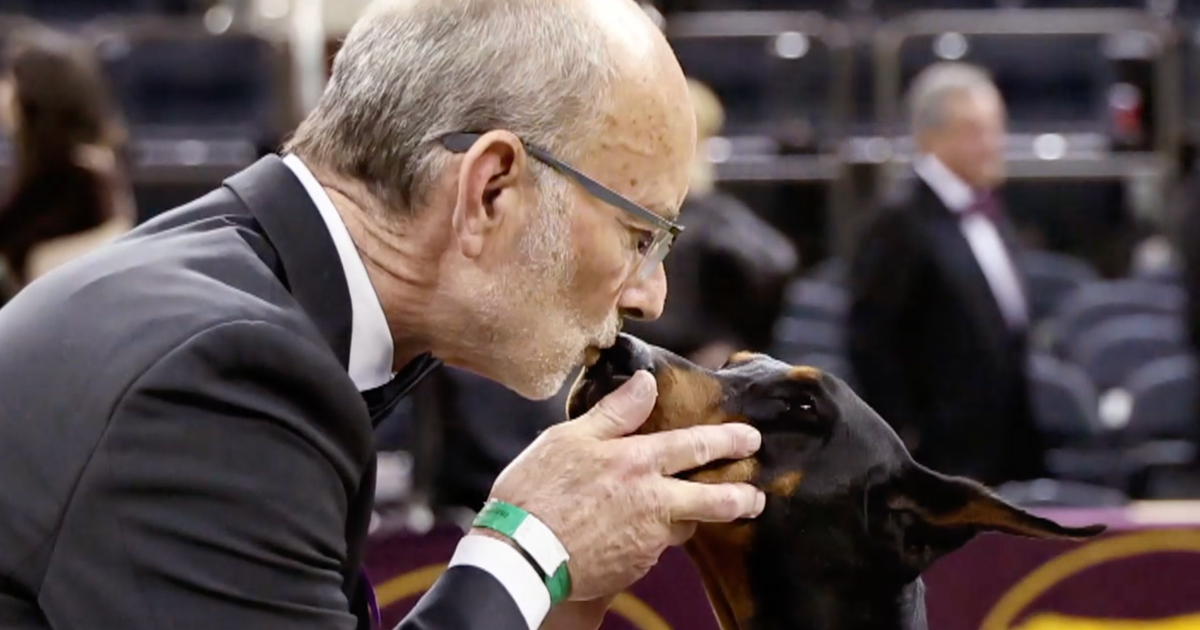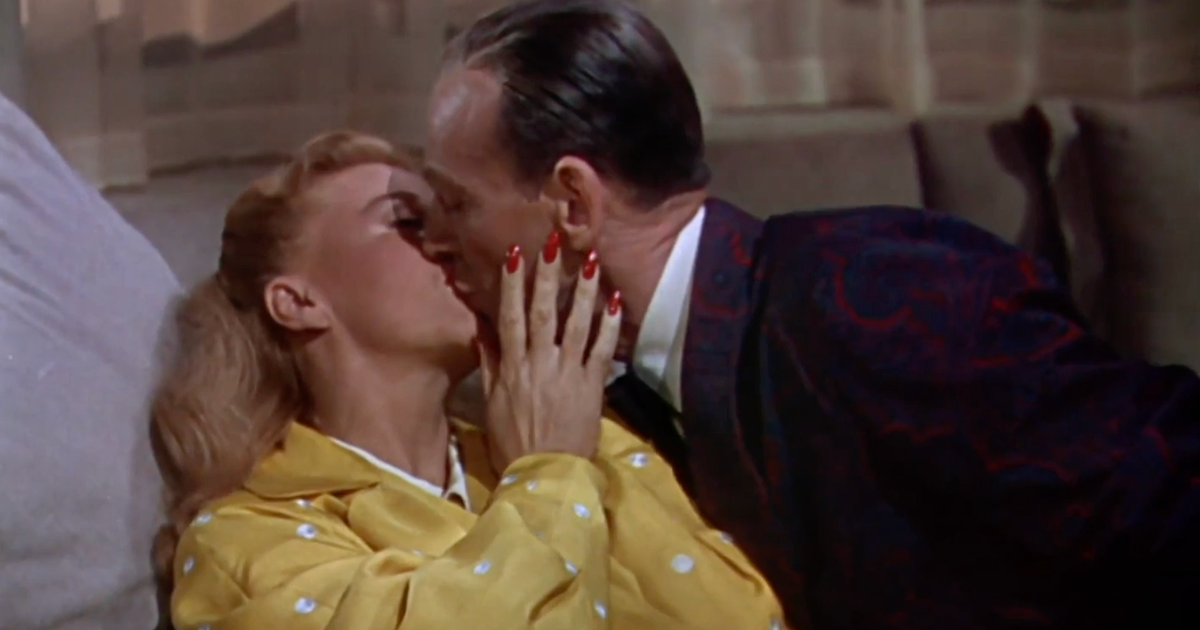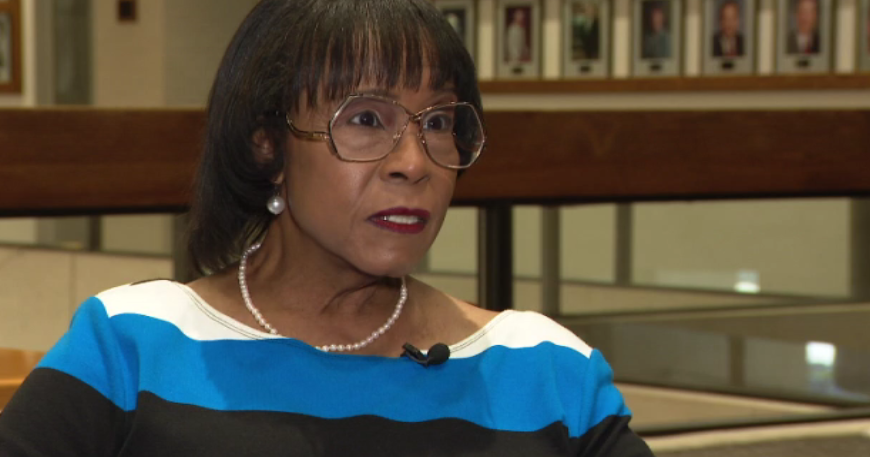Book excerpt: "Lessons" by Ian McEwan
Ian McEwan, the Booker Prize-winning author of "Amsterdam" and "Atonement," is back with a new novel, "Lessons" (Knopf), a winding, lifelong journey chronicling love, child sex abuse, and lost opportunities.
Read the excerpt below, and don't miss correspondent Seth Doane's interview with Ian McEwan on "CBS Sunday Morning" October 30!
Part One
This was insomniac memory, not a dream. It was the piano lesson again – an orange-tiled floor, one high window, a new upright in a bare room close to the sickbay. He was eleven years old, attempting what others might know as Bach's first prelude from Book One of The Well-tempered Clavier, simplified version, but he knew nothing of that. He didn't wonder whether it was famous or obscure. It had no when or where. He could not conceive that someone had once troubled to write it. The music was simply here, a school thing, or dark, like a pine forest in winter, exclusive to him, his private labyrinth of cold sorrow. It would never let him leave.
The teacher sat close by him on the long stool. Round-faced, erect, perfumed, strict. Her beauty lay concealed behind her manner. She never scowled or smiled. Some boys said she was mad, but he doubted that.
He made a mistake in the same place, the one he always made, and she leaned closer to show him. Her arm was firm and warm against his shoulder, her hands, her painted nails, were right above his lap. He felt a terrible tingling draining his attention.
'Listen. It's an easy rippling sound.'
But as she played, he heard no easy rippling. Her perfume overwhelmed his senses and deafened him. It was a rounded cloying scent, like a hard object, a smooth river stone, pushing in on his thoughts. Three years later he learned it was rosewater.
'Try again.' She said it on a rising tone of warning. She was musical, he was not. He knew that her mind was elsewhere and that he bored her with his insignificance – another inky boy in a boarding school. His fingers were pressing down on the tuneless keys. He could see the bad place on the page before he reached it, it was happening before it happened, the mistake was coming towards him, arms outstretched like a mother, ready to scoop him up, always the same mistake coming to collect him without the promise of a kiss. And so it happened. His thumb had its own life.
Together, they listened to the bad notes fade into the hissing silence.
'Sorry,' he whispered to himself.
Her displeasure came as a quick exhalation through her nostrils, a reverse sniff he had heard before. Her fingers found his inside leg, just at the hem of his grey shorts, and pinched him hard. That night there would be a tiny blue bruise. Her touch was cool as her hand moved up under his shorts to where the elastic of his pants met his skin. He scrambled off the stool and stood, flushed.
'Sit down. You'll start again!'
Her sternness wiped away what had just happened. It was gone and he already doubted his memory of it. He hesitated before yet another of those blinding encounters with the ways of adults. They never told you what they knew. They concealed from you the boundaries of your ignorance. What happened, whatever it was, must be his fault, and disobedience was against his nature. So he sat, lifted his head to the sullen column of treble clefs where they hung on the page, and he set off again, even more unsteadily than before. There could be no rippling, not in this forest. Too soon, he was nearing that same bad place. Disaster was certain and knowing that confirmed it as his idiot thumb went down when it should have stayed still. He stopped. The lingering discord sounded like his name spoken out loud. She took his chin between knuckle and thumb and turned his face towards hers. Even her breath was scented. Without shifting her eyes from his, she reached for the twelve-inch ruler from the piano lid. He was not going to let her smack him, but as he slid from the stool, he didn't see what was coming. She caught him on his knee, with the edge, not the flat, and it stung. He moved a step back.
'You'll do as you're told and sit down.'
His leg was burning but he wouldn't put his hand to it, not yet. He took a last look at her, at her beauty, her tight high-necked pearl-buttoned blouse, at the fanned diagonal creases in the fabric formed by her breasts below her correct and steady gaze.
He ran from her, down a colonnade of months until he was thirteen and it was late at night. For months she had featured in his pre-sleep daydreams. But this time it was different, the sensation was savage, the cold sinking in his stomach was what he guessed people called ecstasy. Everything was new, good or bad, and it was all his. Nothing had ever felt so thrilling as passing the point of no return. Too late, no going back, who cared? Astonished, he came into his hand for the first time. When he had recovered, he sat up in the dark, got out of bed, went into the dormitory lavatories, 'the bogs', to examine the pale globule in his palm, a child's palm.
Here, his memories faded into dreaming. He went closer, closer, through the glistening universe to a view from a mountain summit above a distant ocean, like the one fatty Cortés saw in a poem the whole class wrote out twenty-five times for a detention. A sea of writhing creatures, smaller than tadpoles, millions on millions, packed to the curved horizon. Closer still, until he found and followed a certain individual swimming through the crowd on its journey, jostling with siblings down smooth pink tunnels, overtaking the rest as they fell away exhausted. At last, he arrived alone before a disc, magnificent like a sun, turning slowly clockwise, calm and full of knowledge, waiting indifferently. If it wasn't him, it would be someone else. As he entered through thick blood-red curtains, there came from a distance a howl, then a sunburst of a crying baby's face.
He was a grown man, a poet, he liked to think, with a hangover and a five-day stubble, rising from the shallows of recent sleep, now stumbling from bedroom to the wailing baby's room, lifting it from its cot and holding it close.
Then, he was downstairs, with the child asleep against his chest beneath a blanket. A rocking chair, and by it on a low table, a book he had bought about world troubles which he knew he would never read. He had troubles of his own. He faced French windows and he was looking down a narrow London garden through a misty wet dawn to a sole bare apple tree. To its left was an upturned green wheelbarrow, not moved since some forgotten day in summer. Nearer, was a round metal table he always intended to paint. A cold late spring concealed the tree's death and there would be no leaves on it this year. In a hot three-week drought that had begun in July he could have saved it, despite the hosepipe ban. But he had been too busy to haul full buckets the garden's length.
His eyes were closing and he was tilting backwards, remembering once more, not sleeping. Here was the prelude as it should be played. It had been a long time since he was here, eleven again, walking with thirty others towards an old Nissen hut. They were too young to know how miserable they were, too cold to talk. Collective reluctance moved them in time like a corps de ballet as they went down a steep grass slope in silence to line up outside in the mist and wait obediently for the class to begin.
Inside, dead centre, was a coke-burning stove and once they were warm, they became riotous. It was possible here, not elsewhere, because the Latin teacher, a short and kindly Scot, could not control the class. On the blackboard, in the master's hand: Exspectata dies aderat. Below it, the clumsy writing of a boy: The long-awaited day had arrived. In this same hut, so they had been taught, men in more serious times once prepared for war at sea, learning the mathematics of laying mines. That was their prep. While here, now, a large boy, a famous bully, swaggered to the front to bend, leering, and offer his satirical backside to be ineffectually beaten with a plimsoll by the gentle Scot. There were cheers for the bully, for no one else would dare so much.
As the din and chaos mounted and something white was chucked across the desks, he remembered, it was Monday and the long-awaited and dreaded day had arrived – again. On his wrist was the thick watch his father gave him. Don't lose it. In thirty-two minutes, it would be piano lesson. He tried not to think of the teacher because he had not practised. Too dark and scary in the forest, to arrive at the place where his thumb went blindly down. If he thought of his mother, he'd go weak. She was far away and couldn't help him, so he pushed her aside. No one could stop Monday coming round. Last week's bruise was fading, and what was it, to remember the piano teacher's scent? It was not the same as smelling it. More like a colourless picture, or a place, or a feeling for a place, or something in between. Beyond dread was another element, excitement, he must also push away.
To Roland Baines, the sleep-deprived man in the rocking chair, the waking city was no more than a remote rushing sound, swelling with the passing minutes. Rushing hour. Expelled from their dreams, their beds, people were moving through the streets like the wind. Here, he had nothing to do but be a bed for his son. He felt the baby's heartbeat against his chest, just under twice the rate of his own. Their pulses fell in and out of phase, but one day they would be always out. They would never be this close. He would know him less well, then even less. Others would know Lawrence better than he did, where he was, what he was doing and saying, growing closer to this friend, then this lover. Crying sometimes, alone. From his father, occasional visits, a sincere hug, catch up on work, family, some politics, then goodbye. Until then, he knew everything about him, where he was in every minute, in every place. He was the baby's bed and his god. The long letting go, like it or not, could be the essence of parenthood and from here was impossible to conceive.
Many years had passed since he let go of the eleven-year-old boy with the secret oval mark on his inner thigh. That evening, he had examined it after lights out, lowering his pyjamas in the bogs, bending to look closer. Here was the impression of her finger and thumb, her signature, a written record of the moment that made it true. A photograph of sorts. It didn't hurt when he ran his own finger around the borders where pale skin shaded greenish into blue. He pushed down hard, right in the centre where it was almost black. It didn't hurt.
Excerpt from "Lessons" by Ian McEwan, copyright 2022 by Ian McEwan. Published by Knopf, a division of Penguin Random House LLC. All rights reserved.
For more info
- "Lessons" by Ian McEwan (Knopf), in Hardcover, eBook and Audio formats, available via Amazon, Barnes & Noble and Indiebound
- ianmcewan.com
See also:




